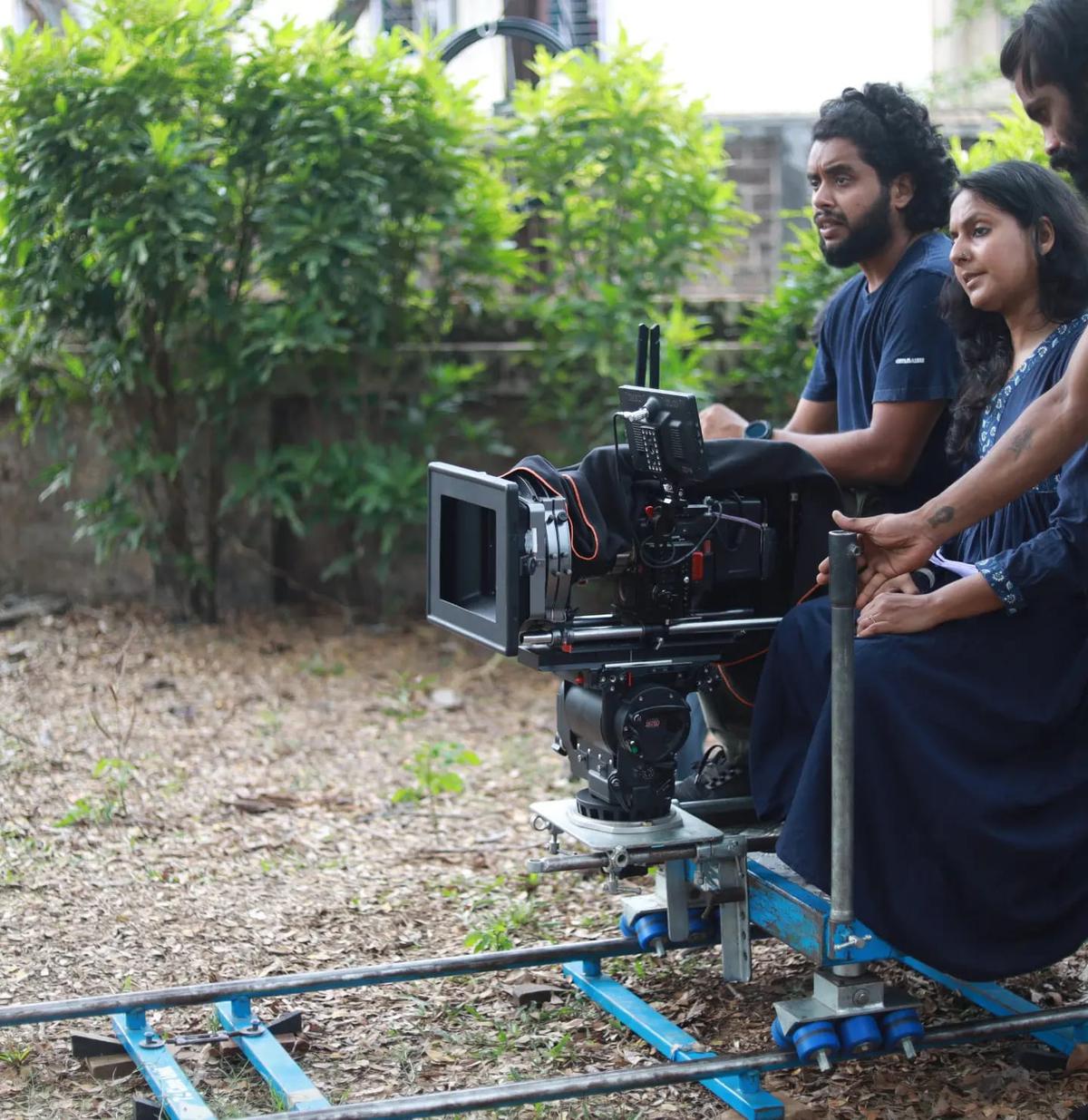From cutting down on waste at racing events to reducing energy on film sets, we speak to people working in various public fields about their sustainability initiatives
From cutting down on waste at racing events to reducing energy on film sets, we speak to people working in various public fields about their sustainability initiatives
In Gurugram’s Museo Camera, lights come on when you step in and fade out as you leave. Launched in 2019 and built on the principles of sustainability, the crowd-funded museum, which houses over 5,000 photographic equipments, installed solar panels in April 2022 to power their energy needs.
Elsewhere in Kochi, debutant director Shruthi Sharanayam came up with a manual for sustainable cinema ahead of the shooting for B32 Muthal 44 Vare in March 2022. As a maiden step, she wrote down notes on eco-friendly behaviour on the film set — from using energy efficient measures to the use of organic and sustainable products.
Meanwhile, JK Tyres appointed a waste management company, Unwaste Network, in November 2021 to clear solid waste at the JK Tyre Motorsports Rally, at Kari Motor Speedway at Chettipalayam, in Coimbatore. As a result, over 1200 kilograms of waste was clear from the site.
As the climate emergency creeps closer to home, individuals and organisations across fields are adopting sustainable measures to fight climate change.
Working together
“Museums can involve in climate change action in many ways. Sustainable practices must be employed in their everyday operations. These can be reducing water and electricity wastage, repurposing packaging materials, switching to LED lighting, composting waste, etc. They can then make a larger impact by educating their visitors about the climate crisis,” says Tejshvi Jain, founder ReReeti, a Bangalore-based organisation that is redefining the role of museums in tackling climate change.
One of their latest projects is IMACC (Indian Museums Against Climate Change), an attempt to create a forum where museums can collectively come together to create an impact, through knowledge sharing of their best practices and building awareness through their collections.
The Indian Music Experience Museum (IME), Bengaluru, has an exhibition called Birdsong all through June. The museum’s director Manasi Prasad, also part of IMACC, says, “It is all about creating ecological awareness by understanding the role birds play in our ecosystem. The impact of noise pollution, birdsong and why birds matter to us.”
Even recently, the museum held a concert by the Soliga Tribe of BR Hills, in celebration of tribal songs about birds. IME is taking two steps at a time by sensitising and upskilling their staff in a programme conducted by ReReeti about the use of sustainable material in exhibits. As a result, plastic and paper cups have been replaced with steel tumblers at the water dispensers and visitors are encouraged to use public transport to come to the museum.
All eight museums under IMACC will pass their exhibits through an eco-friendly lens before curation, for a common platform created by ReReeti.
“Museums are slowly aligning with SDGs (Sustainable Development Goals). We are not collection-heavy but we have huge power consumption,” says Aditi Nayar, director of Kochi’s Kerala Museum, adding that they are on their way to using solar power.
As part of IMACC, the museum will put the eco-lens on a diorama from their sound and light show repertoire. Depicting the mid-century tumultuous social and political events that led to the formation of the State, the diorama will explore Kerala’s traditional and current values around land and the environment.
A diorama from Kerala History Museum’s Light and Sound show will be interpreted from an eco-lens and the discourse will be presented as mini exhibitions, talks and events
| Photo Credit: Special Arrangement
Motorsports gear up
Meanwhile, Akbar Ibrahim, president of Federation of Motor Sports Clubs of India (FMSCI) says, “Go carting, race track, off roading…people congregate at our events, and hence there’s a strong carbon footprint. Let us start with simple doable steps and introduce sustainability in motor sports.”
He adds that they have to be in tune with the Government’s policy regarding emissions. According to Ibrahim, car tyres cannot be reused after one event and the need to lower decibel levels to reduce sound pollution.

Malayalam film B32 Muthal 44 Vare follows sustainability guidelines on the set
| Photo Credit: Special Arrangement
Director Shruthi says that actors arrive on the set of B32 Muthal 44 Vare either by carpooling or public transport. The food is prepared on the sets to prevent wastage and water bottles are refilled. Lights are turned off as soon as shooting ends.
“These are some of the measures we have started with the aim to make this the norm rather than an exception,” she says, adding, “This is our contribution in the fight against climate change.”
























